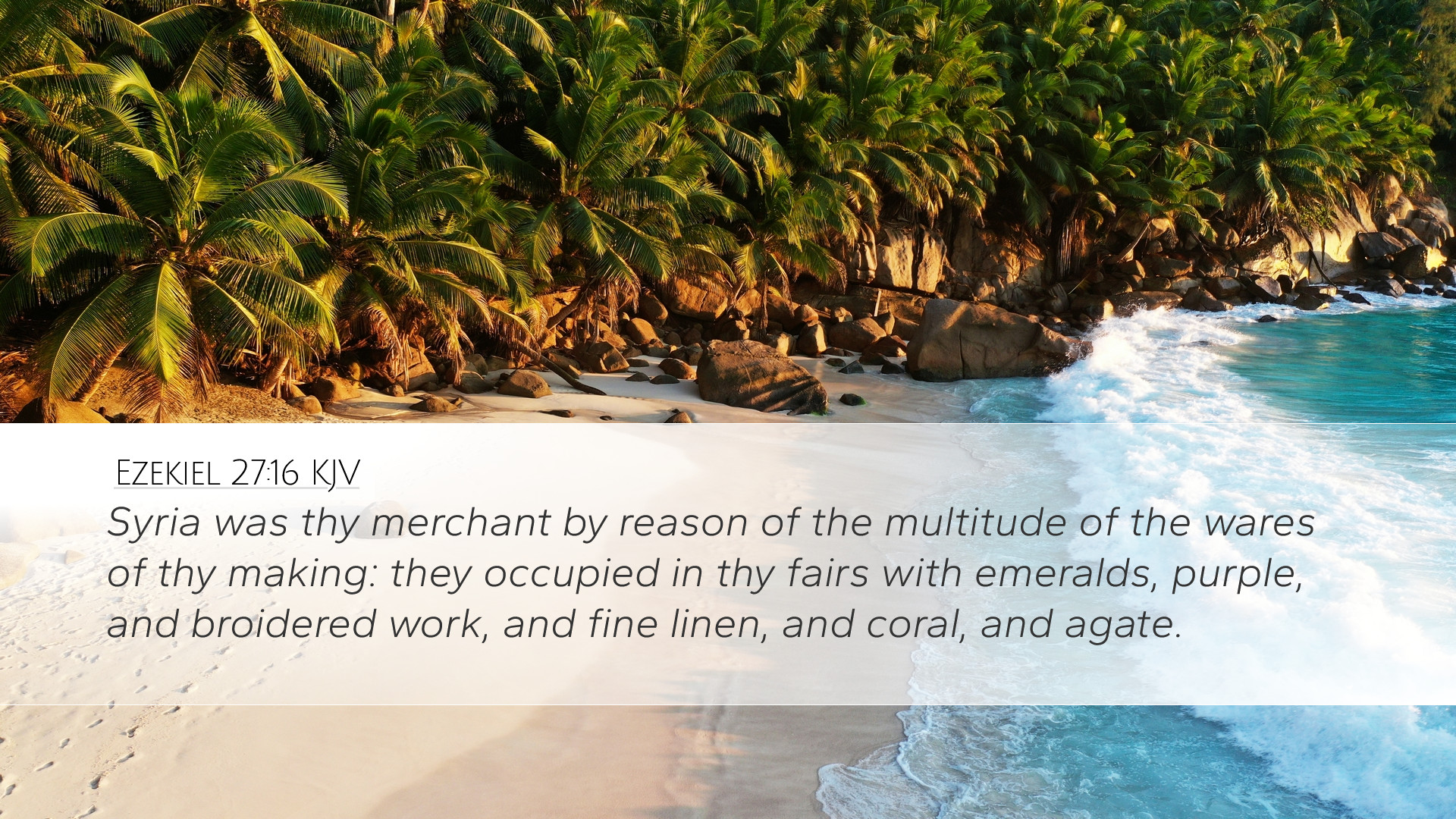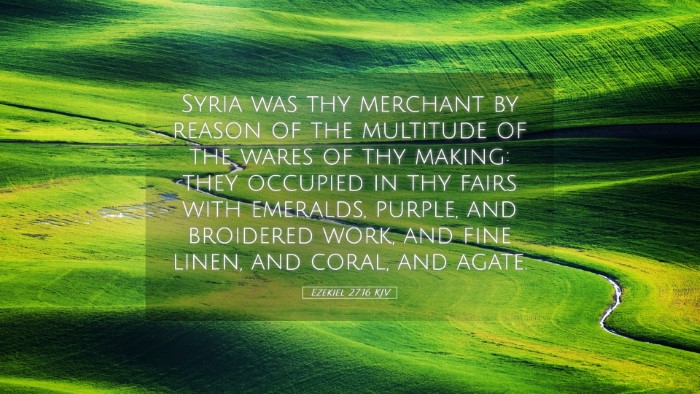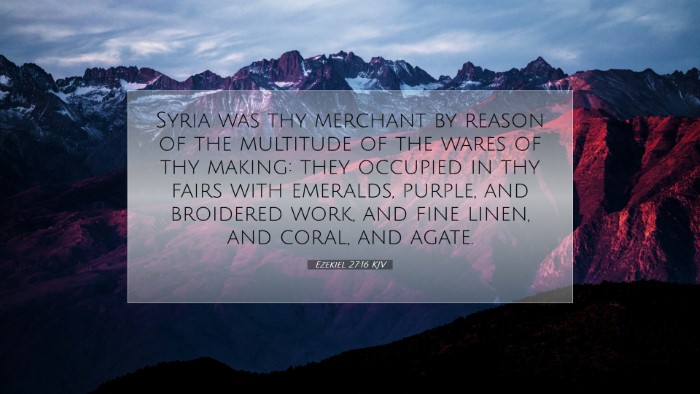Commentary on Ezekiel 27:16
Ezekiel 27:16 states:
"The Syrians were thy merchants: and the multitude of wares of thy making they occupied in thy fairs: they occupied in thy fairs with chariots, and horses, and mules."
Introduction
This verse is part of a larger oracle against Tyre, symbolizing the economic relationships and trade networks that characterized ancient Near Eastern cultures. Ezekiel employs vivid imagery to illustrate the wealth and decadence of Tyre, a city renowned for its commercial prowess. The emphasis on Syria as a key trading partner highlights the interconnectedness of nations in the ancient world.
Contextual Background
Ezekiel prophesied during a time when the kingdom of Judah faced impending exile. His ministry spanned the period before and during the Babylonian captivity, making his oracles both a warning and a lamentation. Tyre, once a powerful city-state, stands as a symbol of human pride and prosperity outside the covenant of God.
This chapter, in particular, serves to showcase the riches of Tyre while foreshadowing its downfall. The merchants of Tyre profited from widespread trade, but this wealth would soon become meaningless in the face of divine judgment.
Analysis of Key Terms
In analyzing the verse, certain key terms are pivotal:
- Syrians: The inclusion of the Syrians in Tyre’s commerce suggests a significant alliance. This relationship denotes a strategic partnership in military and economic terms.
- Merchants: Refers to those engaged in trade, indicating that Tyre’s prosperity was built on thriving commerce.
- Wares: This implies not just goods but the skill and craftsmanship that Tyre represented. These wares included various luxury items sought after by nations.
- Chariots, horses, and mules: Reflects the military and agricultural prosperity of other regions, suggesting that Tyre acted as a hub for vital resources.
Theological Insights
Matthew Henry, in his commentary, emphasizes that the prosperity of Tyre was seen as a consequence of its thriving trade. However, he also notes God's sovereignty in the affairs of nations, indicating that no amount of human wealth can withstand the judgment of God.
Albert Barnes points out that the mention of the Syrians illustrates how Tyre's wealth drew neighboring nations into its orbit, contributing to its false sense of security. Barnes argues that this verse serves as a reminder that nations can be seduced by economic relationships, leading them to forget their dependence on God.
Adam Clarke elucidates that the alliances formed through trade are often transient and can result in profound spiritual implications. He highlights that while Tyre flourished through such unions, it risked moral decay, losing sight of its responsibilities towards God and others.
Historical Significance
The historical backdrop of this verse reveals Tyre's position as a formidable economic power. The city's geographic advantage, located near the Mediterranean Sea, allowed it to facilitate extensive trade routes. The trade with the Syrians, who were significant military players at the time, indicates a complex relationship where commerce intertwined with political alliances.
Understanding this dynamic is essential for comprehending the nuances of Ezekiel’s message. The wealth and commerce that Tyre celebrated would soon be replaced by ruin—a powerful warning to all who might trust in worldly gains rather than divine providence.
Practical Applications
This passage invites contemporary readers, especially pastors and theologians, to reflect on the nature of wealth and alliances in their own contexts:
- Dependence on God: Similar to Tyre’s reliance on its economic position, modern believers must remember that true security comes from faith in God, not material wealth.
- Ethical Commerce: The relationships formed in trade and business should be guided by ethical principles that honor God, ensuring that profit does not come at the expense of morality.
- Community and Responsibility: The interconnectedness of human relationships today reflects the ancient trade networks; thus, believers should cultivate communities that uplift and support one another through shared faith.
Conclusion
Ezekiel 27:16 serves as a profound reminder of the transient nature of human accomplishments, wealth, and alliances. As Tyre faced the certainty of God’s judgment, modern readers are likewise challenged to evaluate their own pursuits. The interplay between commerce, ethics, and divine accountability remains as relevant today as it was in the time of Ezekiel. In all that we do, may we seek to honor God first, remembering that His sovereignty reigns over the affairs of humanity.


